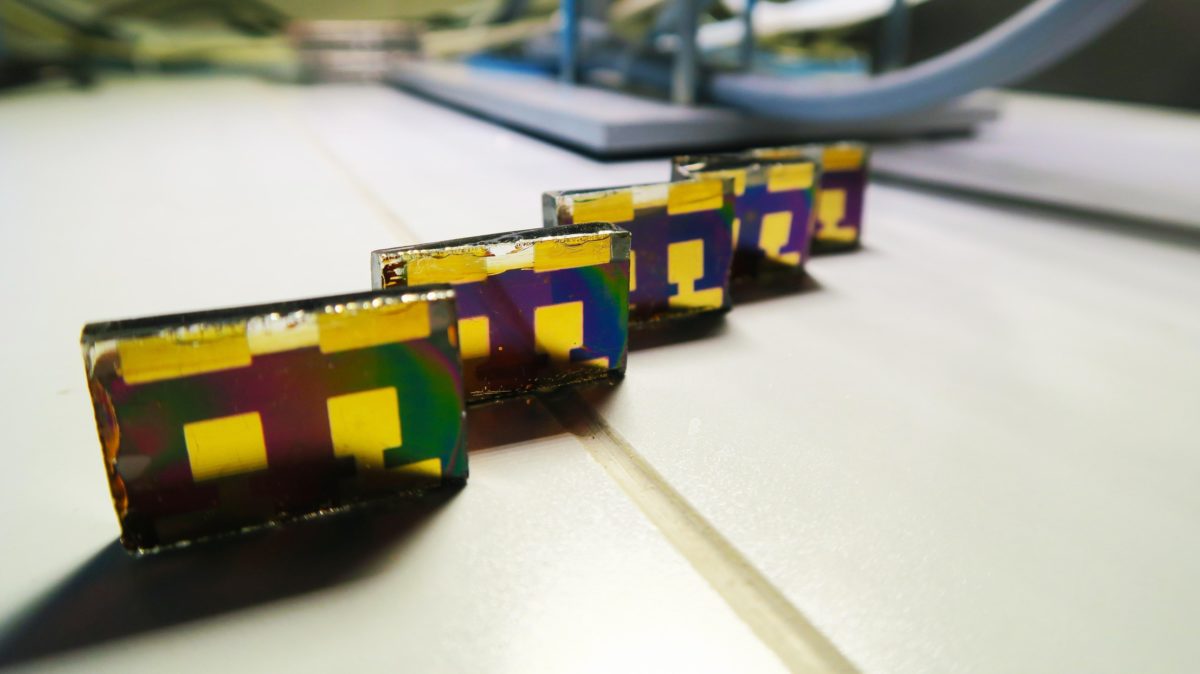A team of researchers at the École Polytechnique Fédérale de Lausanne (EPFL) has devised a new method for assessing the stability of perovskite solar cells which they say removes several of the drawbacks inherent to lab and outdoor testing of such devices.
The team’s approach, described in the paper Performance of perovskite solar cells under simulated temperature-illumination real-world operating conditions, published in Nature Energy, is centered on simulating realistic irradiation and temperature conditions in a laboratory, which the researchers say eliminates the need for an encapsulant and so allows them to eliminate failure mechanisms related to that element, rather than in the perovskite material itself.
Weather data from a nearby station in Lausanne was used to reproduce real-world temperature and irradiance profiles from specific days in a laboratory, enabling the scientists to quantify the device’s performance under realistic conditions.
Degradation recovered after dark
Their findings showed the cells were not dramatically affected by the ‘real world’ temperature and irradiance swings and that while some degradation of cell efficiency occurred during the ‘day’, it was recovered after dark. That could be seen as evidence stability problems which have held perovskites back from commercial development for so long have been solved. However, many of those hurdles to mass production related to cells coming into contact with moisture, an occurrence which was not discussed in the EPFL results.
The institute has been a leader in investigating the performance of perovskite cells and in developing standard measurements for various aspects of them, including aging and degradation.
“The term ‘stability’ is used very broadly and assessed in various ways, meaning different groups are running different races,” reads the research paper’s abstract. “For the application, only energy yields that can be achieved under real-world, long-term operation matter.”
This content is protected by copyright and may not be reused. If you want to cooperate with us and would like to reuse some of our content, please contact: editors@pv-magazine.com.




4 comments
By submitting this form you agree to pv magazine using your data for the purposes of publishing your comment.
Your personal data will only be disclosed or otherwise transmitted to third parties for the purposes of spam filtering or if this is necessary for technical maintenance of the website. Any other transfer to third parties will not take place unless this is justified on the basis of applicable data protection regulations or if pv magazine is legally obliged to do so.
You may revoke this consent at any time with effect for the future, in which case your personal data will be deleted immediately. Otherwise, your data will be deleted if pv magazine has processed your request or the purpose of data storage is fulfilled.
Further information on data privacy can be found in our Data Protection Policy.